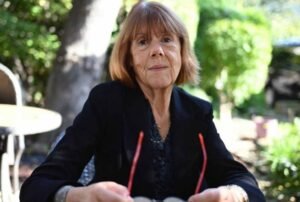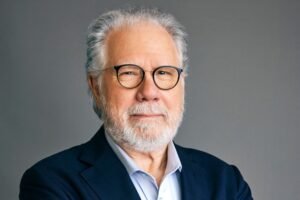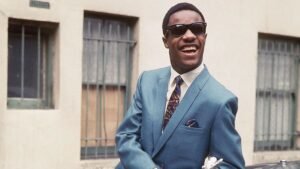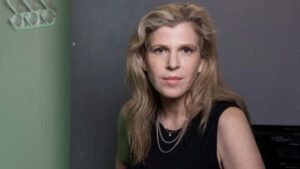Peter Turkson, The African Voice of the Vatican

El cardenal Peter Turkson, referente africano en la Curia Romana, durante una conferencia sobre desarrollo humano integral.
Peter Turkson is a prominent Ghanaian cardinal recognized for his commitment to social justice, human development, and the environment. With a strong theological background and an international career, he played a key role in promoting the encyclical Laudato Si’ and in the reform of the Curia under Pope Francis. His leadership has left a profound impact on the contemporary Catholic Church.
Peter Turkson: The Ghanaian Cardinal Who Shaped the Church’s Social and Environmental Direction
Peter Kodwo Appiah Turkson is one of the most influential figures in the Catholic Church of the 21st century. Born on October 11, 1948, in Nsuta-Wassaw, Ghana, his career combines a solid theological education with a deep commitment to social, environmental, and economic issues, which has led him to occupy key roles within the Vatican. His profile is primarily that of a global pastor, but also of a strategist with the ability to bridge continents, cultures, and ideological divides within contemporary Catholicism.
Early Years and Academic Formation
The son of a Catholic carpenter and a Methodist mother, Turkson grew up in an interdenominational environment that shaped his openness to dialogue from an early age. He studied at St. Teresa’s Minor Seminary in Amisano and later entered St. Peter’s Major Seminary in Pedu. In 1975, he was ordained a priest by Pope Paul VI, and later pursued higher studies at the Pontifical Gregorian University in Rome and the Biblical Institute of Jerusalem, specializing in Scripture.
These years of formation in Europe and the Middle East shaped his deep theological vision but also provided him with an intercultural perspective that would later define his work in the Vatican.
Ecclesiastical Rise and Leadership in Ghana
In 1992, Pope John Paul II appointed him Metropolitan Archbishop of Cape Coast. At 44, Turkson became one of the youngest bishops in the country. From this role, he promoted interreligious dialogue, supported rural education, and worked actively to improve access to health and clean water in remote communities. He was a strong advocate for farmers’ rights and policies of sustainable development tailored to the African context.
His impact was recognized in 2003 when he was created a cardinal by Pope John Paul II, becoming the first Ghanaian to attain that rank.
His Role in the Vatican: Justice, Peace, and Integral Human Development
One of the most significant moments of his ecclesiastical career was his appointment as President of the Pontifical Council for Justice and Peace, a position he held from 2009 to 2016. During this period, Turkson became the strongest voice in the Vatican on global equity issues, fair trade, the external debt of poor countries, and workers’ rights.
He was tasked with presenting and promoting the document Towards Reforming the International Financial and Monetary Systems in the Context of Global Public Authority, which proposed the creation of a global authority to regulate the economy and defend the common good. This text sparked controversies due to its critical tone towards neoliberalism, but it also showcased his intellectual boldness.
In 2016, with Pope Francis’ reform of the Curia, he was appointed Prefect of the newly created Dicastery for the Promotion of Integral Human Development, a super-ministry that encompasses issues such as migration, justice, health, peace, and the environment. From there, Turkson coordinated the Church’s response to complex problems such as the Mediterranean migration crisis, slave labor, and climate change.
Influence on the Laudato Si’ Encyclical
Although he was not the direct author, his conceptual influence on Laudato Si’, Pope Francis’ ecological encyclical published in 2015, was widely recognized. Turkson coordinated several of the teams that worked on the document and was its primary promoter in international forums, from the United Nations to climate summits.
Thanks to his intervention, the Vatican took on a prominent role in issues of sustainability, clean energy, and environmental justice, particularly defending indigenous communities and the most vulnerable countries against global warming.
A Papal Candidate and His Challenges
Since the 2013 conclave, Turkson has frequently been mentioned as one of the “papabile” cardinals. His international profile, experience in social issues, and African heritage have placed him under the spotlight as a figure capable of leading a truly global Church.
However, he has also had to navigate internal tensions. In 2021, he submitted his resignation as Prefect of the Dicastery for Integral Human Development. Although accepted discreetly, the episode reflected internal frictions within the Curia, particularly regarding administrative management and the autonomy of the agency. Instead of retiring, Turkson later assumed a role in the Pontifical Academy of Sciences, demonstrating his ongoing relevance and recognition at the highest ecclesiastical levels.
Legacy and Future Projection
Peter Turkson represents one of the most lucid and coherent voices in 21st-century Catholicism. Not only for his doctrinal commitment but also for his ability to embody a Church that reaches out, as Pope Francis proposes: one that is concerned with the poor, engages with science, is attentive to planetary crises, and open to cultural diversity.
In a time marked by geopolitical tensions, inequality, and environmental collapse, his leadership remains a beacon for both believers and social, political, and environmental actors. His name is already inscribed among those who have given the Vatican a prophetic voice beyond the walls of St. Peter’s.







